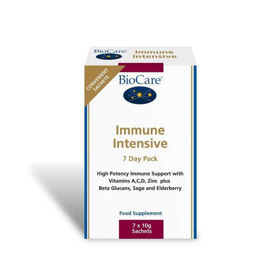Vprašanje stranke:
Ali je angina nalezljiva? Vprašanje anonimne stranke
Odgovor farmacevta:
Angina, pogosto imenovana tudi tonzilitis, je vnetje žrela, ki je najpogosteje posledica virusne ali bakterijske okužbe. Ker so nekatere oblike angine nalezljive, je pomembno razumeti, kako se prenaša in kakšne ukrepe je treba sprejeti za preprečevanje širjenja okužbe.
Virusna angina je običajno posledica prisotnosti virusov, kot so adenovirusi, rinovirusi, virusi influence ali virus Epstein-Barr, ki povzroča infekcijsko mononukleozo. Te vrste angine so nalezljive in se običajno prenašajo kapljično - torej s kaplkjicami, ki nastanejo ob kašljanju ali kihanju okužene osebe, ali s stikom z onesnaženimi površinami, kot so kljuke, ročaji ali igrače. Okužba se lahko širi tudi z deljenjem hrane, pijače ali osebnih predmetov, kot so brisače ali zobne ščetke. Virusna angina je pogosto najbolj nalezljiva v prvih nekaj dneh po začetku simptomov, vendar se lahko virus izloča tudi nekaj dni pred pojavom simptomov.
Bakterijska angina je pogosto posledica okužbe s Streptococcus pyogenes, bakterijo, ki povzroča streptokokno angino. Ta vrsta angine je tudi nalezljiva in se običajno prenaša s kapljicami ali s stikom z onesnaženimi površinami. Streptokokna angina je še posebej nalezljiva v prvih nekaj dneh po začetku simptomov in se lahko prenaša tudi z ljudmi, ki so nosilci bakterije, vendar nimajo simptomov.
Da bi preprečili širjenje nalezljive angine, je pomembno upoštevati ustrezne higienske ukrepe, kot so redno umivanje rok, pokrivanje ust in nosu ob kašljanju ali kihanju ter izogibanje tesnemu stiku z bolnimi osebami. Pomembno je tudi redno čiščenje in razkuževanje površin in predmetov, ki se jih pogosto dotikamo, kot so kljuke, stikala, telefoni in računalniške tipkovnice.
Kako dolgo je nalezljiva angina?
Pri virusni angini je običajno nalezljiva že nekaj dni pred pojavom simptomov in ostaja nalezljiva v prvih nekaj dneh po začetku bolezni. Pri bakterijski angini je najbolj nalezljiva v prvih nekaj dneh po začetku simptomov, vendar se lahko nalezljivost nadaljuje, dokler oseba ne začne jemati antibiotikov in se simptomi ne izboljšajo.
Nalezljivost angine se lahko razlikuje tudi glede na posameznika in njegovo sposobnost, da se okužba prenese na druge. Kljub temu je priporočljivo, da se bolnik z angino izogiba tesnemu stiku z drugimi, dokler se simptomi ne izboljšajo in ni več možnosti za prenos okužbe.
Da bi zmanjšali tveganje za širjenje nalezljive angine, je pomembno upoštevati ustrezne higienske ukrepe, kot so redno umivanje rok, pokrivanje ust in nosu ob kašljanju ali kihanju ter izogibanje tesnemu stiku z drugimi ljudmi, zlasti v prvih dneh bolezni. Pomembno je tudi redno čiščenje in razkuževanje površin in predmetov, ki se jih pogosto dotikamo, da se prepreči prenos okužbe.
Zanimivo branje: Limfociti visoki
Zanimivo branje: Angina znaki/simptomi








 Facebook
Facebook
 Instagram
Instagram
 info@moja-lekarna.com
info@moja-lekarna.com

